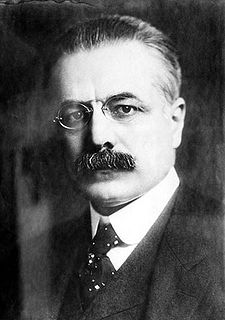A Quote by Ralph Waldo Emerson
Invention breeds invention. No sooner is the electric telegraph devised than gutta-percha, the very material it requires, is found. The aeronaut is provided with gun-cotton, the very fuel he wants for his balloon.
Related Quotes
In proportion to the mental energy he spent, the man who creates a new invention receives but a small percentage of his value in terms of material payment, no matter what fortune he makes, no matter what millions he earns. But the man who works as a janitor in the factory producing that invention, receives an enormous payment in proportion to the mental effort that his job requires of him. And the same is true of all men between, on all levels of ambition and ability.
...those experiments be not only esteemed which have an immediate and present use, but those principally which are of most universal consequence for invention of other experiments, and those which give more light to the invention of causes; for the invention of the mariner's needle, which giveth the direction, is of no less benefit for navigation than the invention of the sails, which give the motion.
Now, before sliced bread was invented in the 1910s I wonder what they said? Like the greatest invention since the telegraph or something. But... the thing about the invention of sliced bread is this - that for the first 15 years after sliced bread was available no one bought it; no one knew about it; it was a complete and total failure.
This country has achieved its commercial and financial supremacy under a regime of private ownership. It conquered the wilderness, built our railroads, our factories, our public utilities, gave us the telegraph, the telephone, the electric light, the automobile, the airplane, the radio and a higher standard of living for all the people than obtains anywhere else in the world. No great invention ever came from a government-owned industry.
Next came the Patent laws. These began in England in 1624; and, in this country, with the adoption of our constitution. Before then [these?], any man might instantly use what another had invented; so that the inventor had no special advantage from his own invention. The patent system changed this; secured to the inventor, for a limited time, the exclusive use of his invention; and thereby added the fuel of interest to the fire of genius, in the discovery and production of new and useful things.
It may be that the invention of the aeroplane flying-machine will be deemed to have been of less material value to the world than the discovery of Bessemer and open-hearth steel, or the perfection of the telegraph, or the introduction of new and more scientific methods in the management of our great industrial works. To us, however, the conquest of the air, to use a hackneyed phrase, is a technical triumph so dramatic and so amazing that it overshadows in importance every feat that the inventor has accomplished.
There are many points in the history of an invention which the inventor himself is apt to overlook as trifling, but in which posterity never fail to take a deep interest. The progress of the human mind is never traced with such a lively interest as through the steps by which it perfects a great invention; and there is certainly no invention respecting which this minute information will be more eagerly sought after, than in the case of the steam-engine.
We have a duty towards music; namely to invent it. ...Invention presupposes imagination but should not be confused with it. For the act of invention implies the necessity of a lucky find and of achieving realization of this find. What we imagine does not necessarily take on concrete form and may remain in a state of virtuality; whereas invention is not conceivable apart from its actually being worked out.
A hot air balloon requires a great deal of fuel to keep it aloft, so that you can't fly it even for one day. A gas balloon, which usually uses helium, has the problem that the helium cools at night when the sun is not on it, and you have to throw ballast overboard to keep it from going to the surface.








































